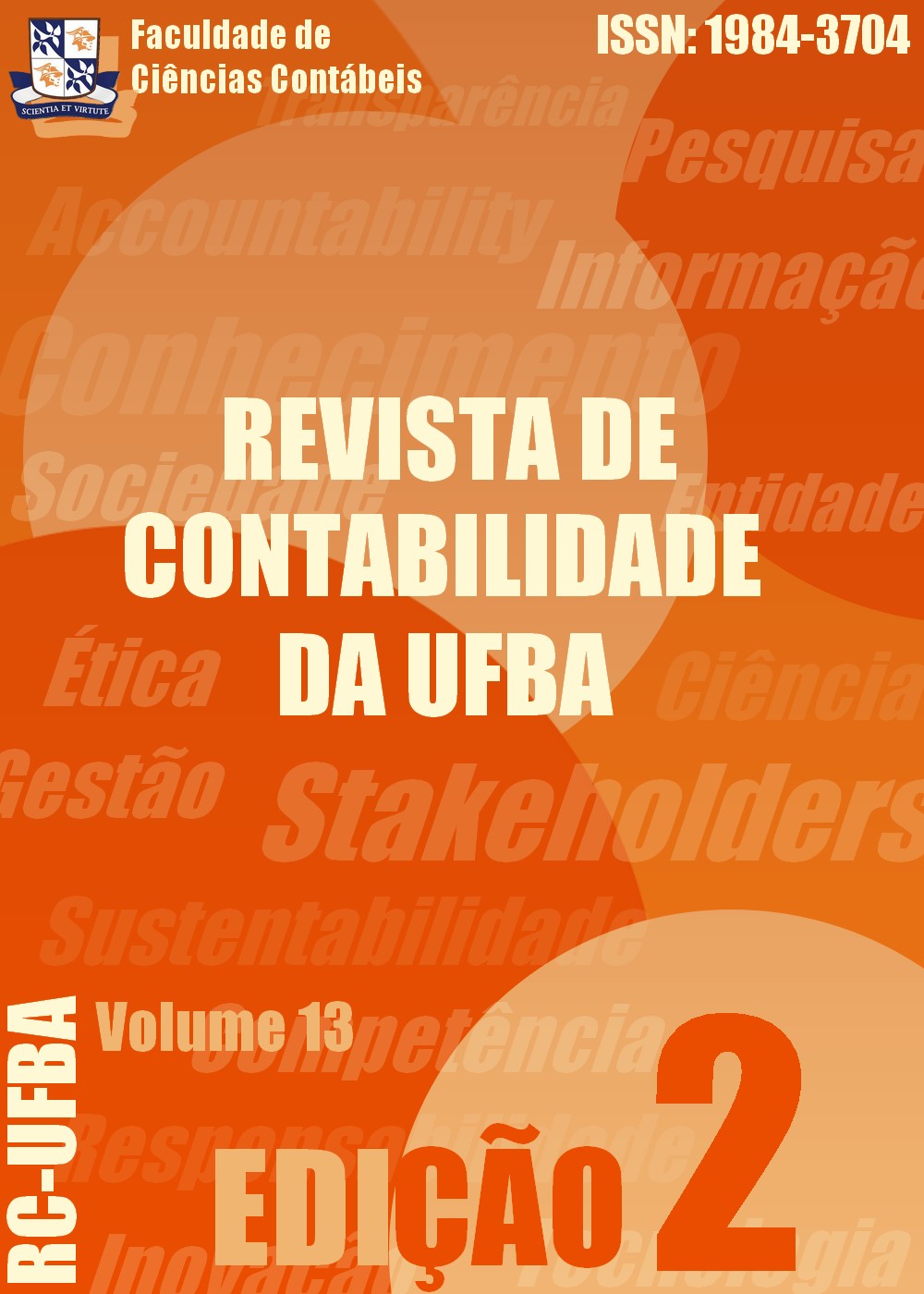SOCIO-ENVIRONMENTAL DISCLOSURE AND LEGITIMACY: AN INVESTIGATION OVER THE MAJOR BRAZILIAN BANKS.
DOI:
https://doi.org/10.9771/rc-ufba.v13i2.28368Palabras clave:
Banks, Brazil, Voluntary Disclosure, Legitimacy theory, SER.Resumen
This paper analyzes the relationship between sustainability and financial performances of the six biggest banks in Brazil. Brazilian banks were analyzed regarding their socio-environmental and economic disclosure. We collected socio-environmental data from annual reports, available on banks websites and financial data at Economática® database. Although disclosure data are not audited, which represents a limitation, these banks conduct their business in accordance with sustainable development policies and regulations, and publish information about initiatives. Methodological procedures include a content analysis, canonical correlation analysis and panel data regression providing a relationship assessment between variables. Results in this paper mostly showed a positive relationship between socio-environmental responsibility (SER) and financial performances, even considering the impacts of Brazilian crisis. The objective of this voluntary disclosure lays on companies’ legitimacy as a dialogue mechanism with society.
Descargas
Descargas
Publicado
Cómo citar
Número
Sección
Licencia
Autores que publicam nesta revista concordam com os seguintes termos:- Autores mantém os direitos autorais e concedem à revista o direito de primeira publicação, com o trabalho licenciado simultaneamente sob uma Licença Creative Commons Attribution CC-BY-NC após a publicação, permitindo o compartilhamento do trabalho com reconhecimento da autoria do trabalho e publicação inicial nesta revista.
- Autores têm autorização para assumir contratos adicionais separadamente, para distribuição não-exclusiva da versão do trabalho publicada nesta revista (ex.: publicar em repositório institucional ou como capítulo de livro), com reconhecimento de autoria e publicação inicial nesta revista.
- Autores têm permissão e são estimulados a publicar e distribuir seu trabalho online (ex.: em repositórios institucionais ou na sua página pessoal), já que isso pode gerar alterações produtivas, bem como aumentar o impacto e a citação do trabalho publicado.















 This work is licensed under a license
This work is licensed under a license 